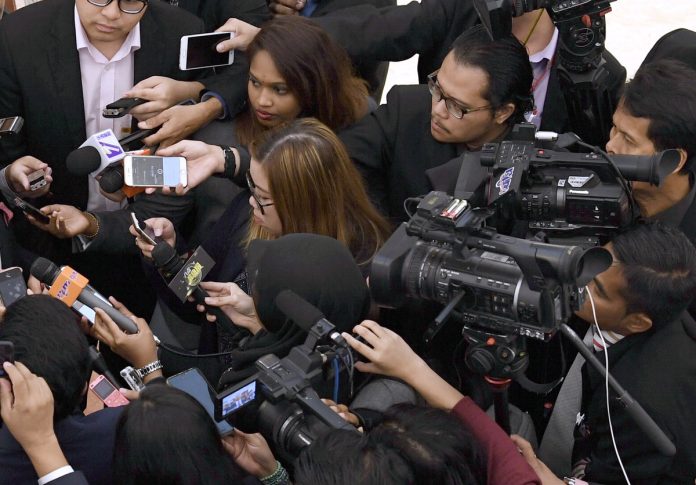KUALA LUMPUR: Human qualities must remain the central focus in the adaptation and use of artificial intelligence (AI) in newsrooms to ensure that the integrity and core values of journalism are preserved.
Astro Awani editor-in-chief Ashwad Ismail said that while AI brings greater convenience and efficiency to newsroom operations, it cannot replace the role of journalists as storytellers and custodians of truth.
“Technological advancements are important, but the foundation must remain rooted in human qualities. The core philosophy is how AI can enhance our qualities as journalists and improve the journalism we produce,” he said.
“This technology will come and go, but what truly strengthens us is our core philosophy – our people and the quality of our journalism,” he said when appearing as a guest on the Bernama TV’s Ruang Bicara programme titled “Kewartawanan Era Baharu: Keseimbangan AI dan Etika” (Journalism in the New Era: Embracing AI, Safeguarding Ethics), held in conjunction with the National Journalists Day (HAWANA) 2025 celebration last night.
Also featured on the programme were The Jakarta Post editor-in-chief Taufiq Rahman and media expert Sayed Munawar Sayed Mohd Mustar.
Ashwad emphasised that the integration of AI in journalism must be guided by clear ethical principles to ensure it remains aligned with the profession’s core mission, truth and social responsibility.
“When we acknowledge that there must always be a man behind the machine, it becomes clear that strong principles and proper guidance are essential in how we approach, use, and even embrace AI,” he said.
Meanwhile, Taufiq noted that while AI can serve as a valuable tool for tasks like data compilation and document processing, editorial decisions must ultimately remain in human hands to preserve the integrity of news judgment.
“Media is an industry of truth. What we report, what we write, is all about the truth. I still doubt whether AI today is capable of fully understanding the nuance or subtlety in journalistic content,” Taufiq said.
He added that in Indonesia, the Dewan Pers (Press Council) issued guidelines on the use of AI in journalism in January, which among other things, emphasise the importance of labelling AI-generated content to ensure transparency.
“If a news item, photo, or video is produced by AI, it must be clearly labelled. We cannot mislead the public by presenting it as the work of journalists,” he said. While acknowledging that some media organisations still operate with basic equipment, he stressed that this should not be seen as a disadvantage, but rather as a testament to their commitment to uphold ethical principles that have been the foundation of journalism for centuries.
Meanwhile, Sayed Munawar noted that journalistic ethics remain as relevant as ever, even in the rapidly evolving era of AI, as ethics themselves are not new, only the context of their application has shifted with technological progress.
“Ethics is still a relevant issue. What has changed is the context, such as the balance between privacy and intrusion. Now we face the question of AI, but the core ethical principles remain unchanged. With AI, processes may become faster, more accurate, and better guided.
“If it is a tool, AI remains just that, a tool. Like an axe, it won’t function without someone wielding it. But what AI lacks is wisdom. The real question is how far we want to use this tool, and for what purpose. Even a blunt axe can be used as a hammer, that’s creativity,” Sayed Munawar added.
The three-day HAWANA 2025 celebration, which runs until tomorrow, is organised by the Ministry of Communications, with the Malaysian National News Agency (Bernama) serving as the implementing agency.
The HAWANA 2025 celebration’s main event will be officiated by Prime Minister Datuk Seri Anwar Ibrahim at the World Trade Centre Kuala Lumpur (WTCKL) today.
The date May 29 was gazetted as National Journalists’ Day to commemorate the publication of the first edition of “Utusan Melayu” newspaper on May 29, 1939, honouring the contributions and services of media professionals as vital agents in shaping an informed society.








